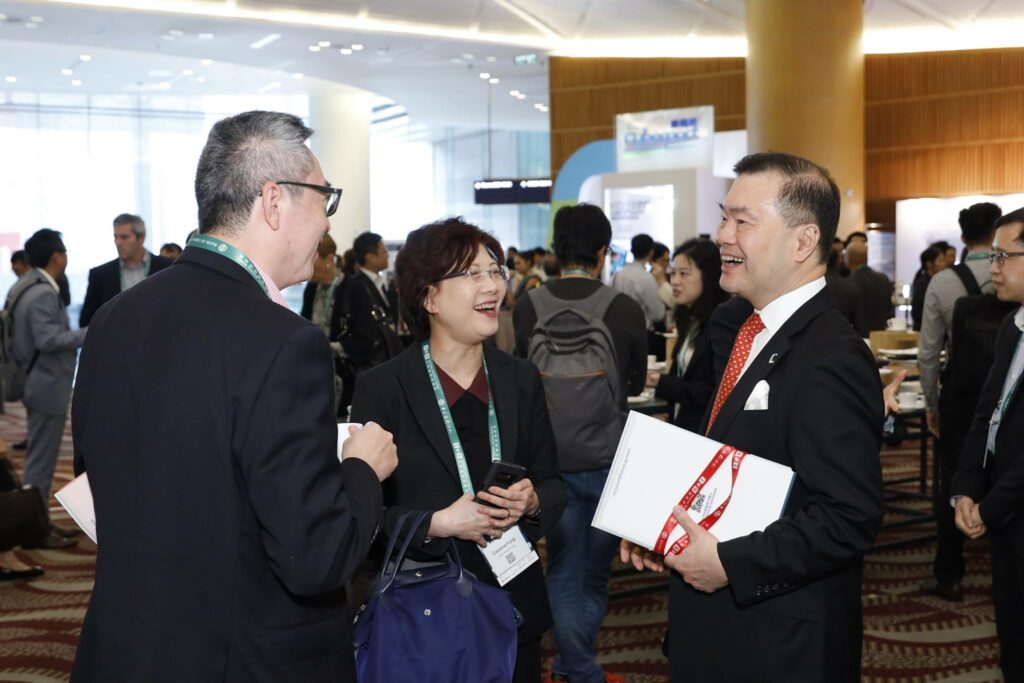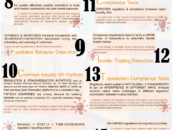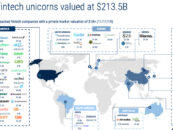
Cyberport Chairman Reveals Secret Sauce to Growing 350 Fintechs in Just 3 Years
by Fintech News Hong Kong April 19, 2019“Everything you do in a fintech startup, you’re likely testing the law, one way or another,” said Cyberport’s chairman Dr. Lee George Lam about fintech in the technology hub he stewards.
“If you want to move out of the box, you’re probably going into a grey area or you’re infringing on some sort of established rule. So we have to give them guidance and give them the full information and let them have a channel to [give] feedback on their concerns and their suggestions so that the regulators can improve.
During the Internet Economy Summit 2019 held in the Hong Kong Convention and Exhibition Center (HKCEC), Fintech News had the opportunity to sit down with Dr. Lee George Lam to speak about, of course, fintech.
Within the past 3 years, Cyberport has grown its fintech ecosystem into a little over 350 companies operating in its halls. With approximately 500 companies total operating in Hong Kong, that’s quite a significant percentage of them in Cyberport.
Two of the four current holders of Hong Kong Monetary Authority’s (HKMA) sought after virtual banking license hails from Cyberport as well.
According to George, “everything here is meticulously planned, because we have no choice.”
“It’s a very important sector for us. Financial services is 18% of our GDP. If we don’t do fintech, our financial services sector will be disrupted.”
“Startups are like babies. They need milk. And we have to make sure that they have enough milk supply to grow healthily into unicorns and also healthy fintech companies. That’s also a challenge.”
Cyberport’s Secret Sauce

Image Credit: Axis Design
According to George, the secret sauce for Cyberport’s fintech is the ecosystem strategy, or the clustering strategy.
“So it’s not a few firms [here], it’s a critical mass of quite a number of firms. There’s a lot of synergy and cross-fertilization of ideas. A lot of cooperation.”
There’s the obvious need for fintechs to collaborate with each other, which George opines Cyberport facilitates by allowing for interactions between fintech firms, and thus, for collaboration without individual startups having to reinvent the wheel on what they already do.
But the critical mass apparently allows for diversification of offerings too.
A fintech startup founder for example, could enter Cyberport and see another firm doing a better job at the same offering. So they would themselves realise that the idea isn’t too great, and instead come up with something more unique, and more to the point, what the market actually needs.
And to answer the point about fintechs breaking one existing law or another above, Cyberport claims that they keep close ties with regulators and those that can help with compliance: the Hong Kong Monetary Authority, the Futures Commission, the Stock Exchange of Hong Kong, the Hong Kong Institute of Bankers, the Hong Kong Institute of Directors, and of course, accountants and bankers.
These close ties allows Cyberport to facilitate dialogue between fintechs and their overseers.

Image Credit: Internet Economy Summit 2019
Also of key importance to Cyberport is setting up an investor network, comprising approximately 100 technology fund investors, who can offer smart money, or risk capital to startups.
“If a startup spends 80% of his time fundraising, then his success rate is low because he [should be doing] startup work, not fundraising.”
“So we help them with finding the money and provide market access, partner referrals, and even very difficult tasks such as applying for a world class expert in cloud computing to come to Hong Kong. We can help them with the bureaucracy, and how to navigate through the application process smoothly and speedily.
George compares this positively to Silicon Valley’s dog-eat-dog ecosystem, where statistics show that the success rate is roughly 10% or less.
Which drove me to wonder: would this artificially prolong startups destined to fail?
Driving Ecosystem Through Failure
“Startups bring along a range of benefits such as employment, training development for young people and development of SMEs, new industries,” opined George.
“Success is not just measured by how many unicorns we have but also people who may fail but who learn something valuable and who want to try again.”
While startups rise and fall, talent is being developed within Cyberport’s Fintech Smart-Space co-working spaces as they work for these companies, collecting applicable skills. Therefore, George sees even the failed startups as an avenue for talent development, and thus, raising digital literacy—which leads to jobs for the youth.
“We’re investing in talent, and investing in the future of Hong Kong through the creation of good jobs.”
“Innovation plays a key part so it’s not just tech, but it’s the business model. The out of the box crazy ideas. We need both. We need entrepreneurs and we need tech talent to combine.”
Joining the Greater Bay Area

Hong Kong aims to be the epicenter of the Greater Bay area, comprising 56,000 square kilometres (about three times the size of the San Francisco Bay Area) and a combined population of over 69 million people.
But also, if a fintech needs something made, then Shenzhen can make it. If a fintech needs to test their solution, then they can do so in Guangzhou.
“It’s probably the biggest fintech lab on earth so you can almost test any fintech crazy ideas to see whether it works or not, whether it’s micro lending, insurtech, e-wallet, e-KYC. If it works in the greater bay area, it works in China.”
Startups, including fintech in Hong Kong basically have a ready-made path mapped out for them in Cyberport,
Featured image via Internet Economy Summit 2019








